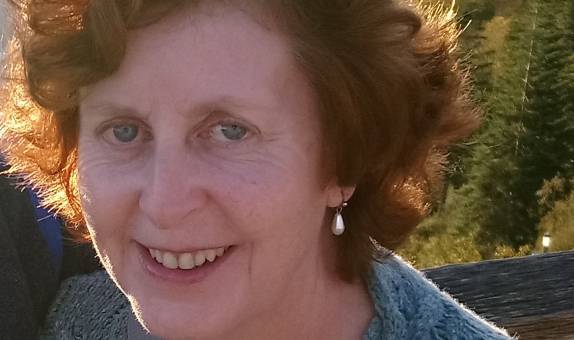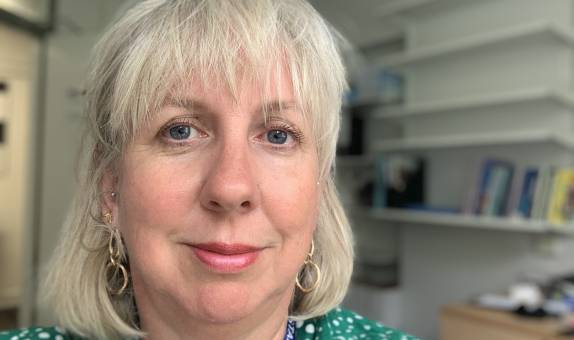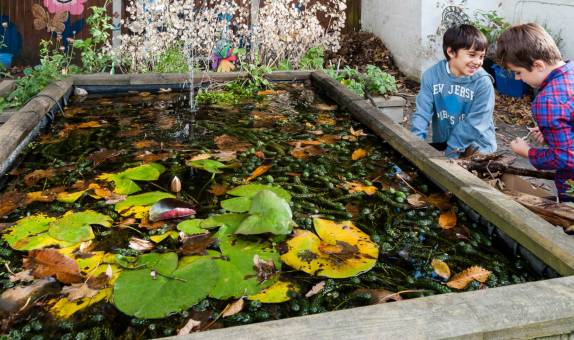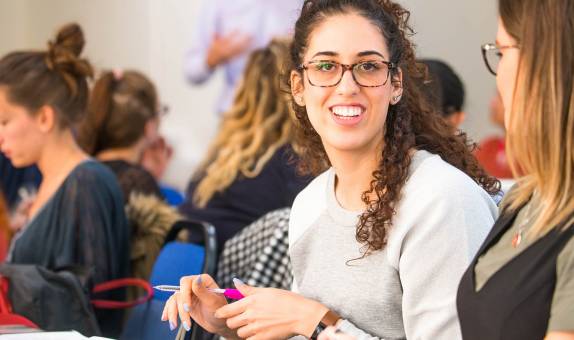Special Educational Needs & Inclusive Practice Foundation Degree FdA

Teaching Excellence Framework (TEF) Gold award
Our commitment to high quality teaching has been recognised with a TEF Gold rating. The University has received an overall rating of Gold, as well as securing a Gold award in the framework's two new student experience and student outcomes categories.
Why choose this course?
Do you want to make a difference to the lives of children and young people up to the age of 25 years who have special educational needs and disabilities? Are you looking for a course that allows you to earn while you learn?
This two-year work-based foundation degree will enable you to develop your practice, become part of a strong network, and complete the first two years of an undergraduate degree, which you can top up to a full degree with the Special Educational Needs & Inclusive Practice BA (Hons) top-up degree course.
This course enables you to combine academic study with work-based learning. During the course, you will need to be working or volunteering 16 hours per week within an early years setting, school, college or alternative provision.
You will explore the requirements of the Special Educational Need and Disability (SEND) Code of Practice and consider the voice and needs of the child or young person. You'll study developmental theories, systems to support learning, legislative frameworks that govern practice, multi-professional perspectives and working with families and carers. You'll develop reflective skills to enable you to consider how to improve practice.
This course is taught at either our Kingston Hill campus, one session per week (1.30–6.30pm) or at REACH Multi-Academy Trust in Feltham (4–9pm).
| Where taught | Attendance | UCAS code | Campus code | Year of entry |
|---|---|---|---|---|
| Kingston Hill | 2 years full time (employment based) | X360 | 2025 | |
| Reach Academy Feltham | 2 years full time (employment based) | X360 | 9 | 2025 |
Please apply for this course via the UCAS website using the relevant code.
| Main Location | Employment based, with some attendance at Kingston Hill |
Reasons to choose Kingston University
- You will be able to earn as you learn, combining workplace learning with part-time academic study at Kingston University.
- You will develop a deeper understanding of SEND to enhance children's learning and development in your workplace and the wider community.
- 96.1% of students thought staff supported their learning (NSS 2023).
- Once you complete this foundation degree, you can take a further year's study and top-up your qualification to a BA (Hons) degree at Kingston University.
What you will study
The course covers personal and professional development, developmental theories, current legislative frameworks governing practice, multi-professional perspectives, and working with children and young people, families and carers.
Year 1
Year 2
In Year 1, you will build on your existing knowledge and experience of working with children and young people with special educational needs and disabilities and develop your academic writing and research skills.
Core modules
Professional Development through Reflective Practice in Special Educational Needs
30 credits
This module is a core requirement of the Special Educational Needs and Inclusive Practice Foundation Degree. The content will explore the knowledge and skills required of higher education and will examine the meaning of academic terminology. Students will explore what constitutes reflective practice in a work-based environment and will be encouraged to identify their previous knowledge and experience and to recognise intrinsic and extrinsic influences on their practice. The main features of the module include the introduction of theory and the interface with work-based learning. Students will be supported in recognising their strengths and areas for enhancement enabling them to reflect on their professional development.
Child Protection and Ethical Practices of Working With Children
30 credits
This module introduces students to the legal and ethical requirements for ensuring that all children and young people are protected and make progress in learning and development. Students will examine challenging case studies and will explore strategies for communicating and working effectively with children and young people, their families/carers and other professionals to ensure that their needs are met.
Learning, Teaching and Development in the Field of Special and Inclusive Education
30 credits
This module introduces students to the development of individuals from birth to 25 years. The content explores factors that may affect children and young people's learning and development and how this is effectively monitored and reported. Students will examine theories, legislation and techniques of data gathering and relate these specifically to practice.
Inclusive Practice
30 credits
This module provides an exciting opportunity for students to undertake visits to investigate how inclusion is interpreted in other educational settings. Students will be encouraged to explore and critically examine the principles of inclusion. They will examine the impact of theory and legislation on professional practice and identify strategies to meet the individual needs of children and young people in their educational settings.
In Year 2, you will further your professional practice, knowledge and expertise, learning about international systems, effective communication, leadership and management and conduct your own special project.
Core modules
Effective Communication Skills
30 credits
This module provides students with the opportunity to develop effective communication skills for different audiences and contexts. Students will explore theory underpinning the acquisition of effective communication skills through a variety of written, verbal, visual and auditory media. Students will learn through a range of exciting teaching and learning approaches. The module will enable students to recognise the flexibility required to address different contextual situations and to develop the communication skills necessary to meet the demands of various roles and responsibilities.
Special Project
30 credits
The module enables students to extend their professional development in a chosen area of practice within the field of special educational needs and inclusive practice. The module supports students to implement an independent, systematic enquiry in order to critically reflect upon an aspect of pedagogy and/or practice and to initiate changes that may improve the educational experiences of children and young people.
International Systems to Support Learning
30 credits
This module introduces students to international systems that have been designed to support the learning and development of children and young people who have a range of differentiated learning needs. Students have the opportunity to compare and contrast different systems and to critically evaluate their use within the English educational context. Students have the opportunity to visit other settings where the use of internationally developed systems are used. Students will investigate how the systems may be adapted or amended and examine, with other practitioners, their effectiveness in supporting children and young people's learning and development.
Leadership in the Field of Special and Inclusive Education
30 credits
This module offers the students the opportunity to develop their knowledge and understanding of leadership theory and how this applies to their professional role in the work place. Students will examine issues relating to personal values and beliefs that may impact upon their ability to lead and support others in the field of special educational needs and inclusive practice. Students will be encouraged to evaluate the methods, strategies and approaches that they use to manage themselves and others.
Future Skills
Knowledge to give you the edge
Embedded within every course curriculum and throughout the whole Kingston experience, Future Skills will play a role in shaping you to become a future-proof graduate, providing you with the skills most valued by employers such as problem-solving, digital competency, and adaptability.
As you progress through your degree, you'll learn to navigate, explore and apply these graduate skills, learning to demonstrate and articulate to employers how future skills give you the edge.
At Kingston University, we're not just keeping up with change, we're creating it.

Entry requirements
Teaching and assessment
Who teaches this course?
This course is taught at Kingston Hill.
Teaching includes lectures, work-based learning activities, tutorials, online learning, workshops and seminars.
Course fees and funding
Additional costs
Depending on the programme of study, there may be extra costs that are not covered by tuition fees which students will need to consider when planning their studies. Tuition fees cover the cost of your teaching, assessment and operating University facilities such as the library, access to shared IT equipment and other support services. Accommodation and living costs are not included in our fees.
Where a course has additional expenses, we make every effort to highlight them. These may include optional field trips, materials (e.g. art, design, engineering), security checks such as DBS, uniforms, specialist clothing or professional memberships.
Facilities
The Kingston Hill campus features an outdoor learning environment where trainee teachers lead curriculum-linked natural sciences activities with children. It includes a specially built 'cubby house', outdoor pond, beehive and nature trail. It offers early years students the opportunity to simulate teaching and learning with natural materials.
There are a number of teaching rooms set up to replicate actual classrooms. Each classroom is subject based – such as an art room, science lab – and is equipped with all the relevant facilities you will need to practise your lessons before taking them into school.
Our library (the Nightingale Centre) has an excellent range of teaching resources to help you plan and teach your lessons, such as a range of children's topic books, music and nursery rhymes on CD, as well as artefacts and kits that can be used to illustrate historical periods, different religions, science, mathematics and music.
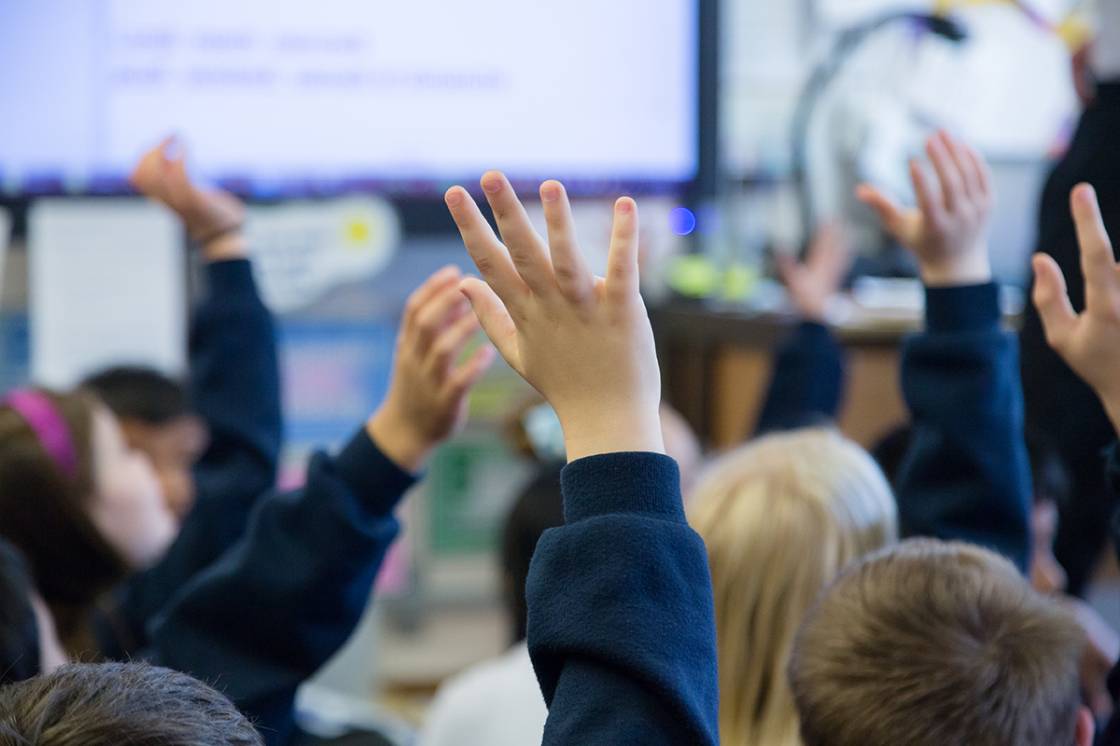
After you graduate
This qualification is valued by employers and is a mark of your professional excellence and expertise.
After successfully completing the foundation degree, you can undertake a further year's study and top-up your qualification to a BA (Hons) degree at Kingston University, which can also lead to postgraduate opportunities.
Many students return to Kingston University for postgraduate and continuing professional development studies including Early Years Initial Teacher Training leading to Early Years Teacher Status (EYTS), the Postgraduate Certificate in Education (PGCE) leading to Qualified Teacher Status (QTS) and masters qualifications such as the MRes at Kingston University, subject to meeting course requirements.
Please note: to progress to EYTS or QTS, you will need GCSE (A*–C or comparable numeric scores under the newly reformed GCSE gradings) in English Language, Maths and Science.
What our students say
Key information set
The scrolling banner(s) below display some key factual data about this course (including different course combinations or delivery modes of this course where relevant).
Course changes and regulations
The information on this page reflects the currently intended course structure and module details. To improve your student experience and the quality of your degree, we may review and change the material information of this course. Course changes explained.
Programme Specifications for the course are published ahead of each academic year.
Regulations governing this course can be found on our website.



